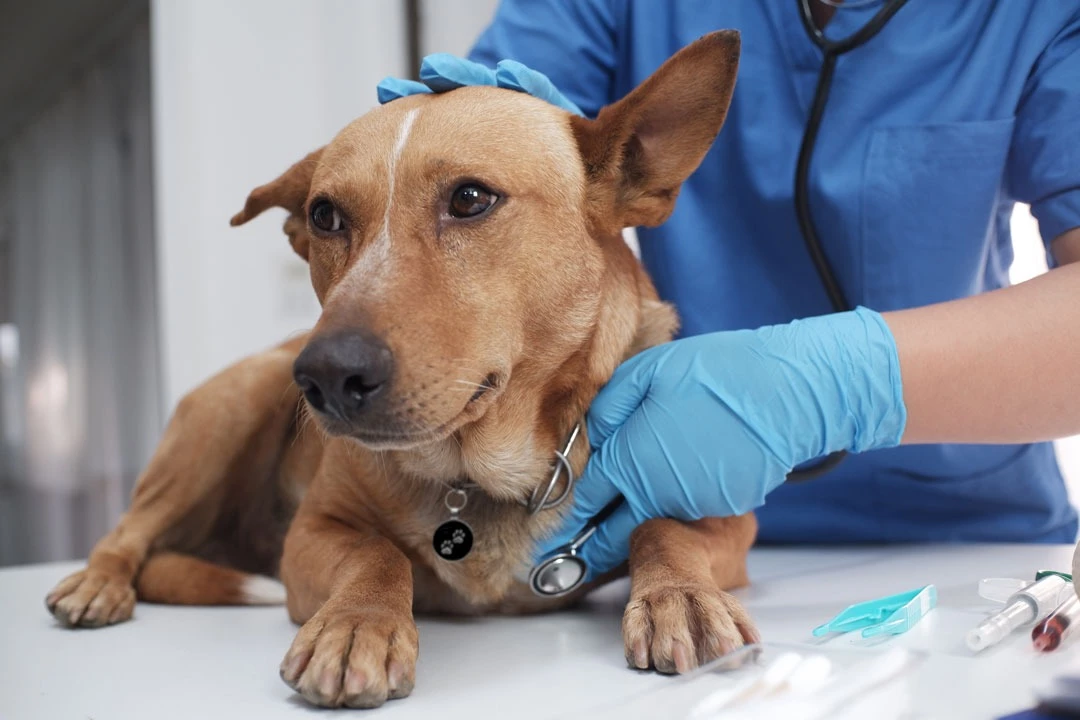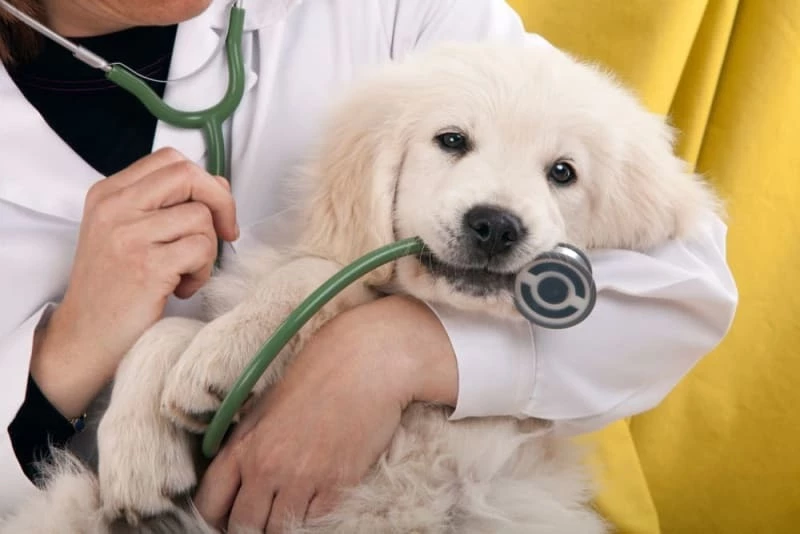Just like humans, dog coughing and gagging is their natural way of reacting to irritants or abnormalities in their airways. To provide the best care for your furry friend, it's important to identify the underlying causes of these symptoms and take appropriate action.
In this article, we will explore these reasons and provide insights into managing your dog's health effectively.
Why Is My Dog Coughing And Gagging?
Your dog keeps coughing and gagging, which can be caused by various factors. It's important to be aware of these common causes to determine if your dog's cough is a serious concern.
Infections
 Source: Google Images
Source: Google Images
Infections are a common cause of dog coughing and gagging, regardless of their age. Dogs can contract various respiratory infections, leading to coughing and discomfort. Some of the common infections include:
- Kennel Cough (Bordetella): This highly contagious respiratory infection can result in a persistent, hacking cough.
- Distemper: A viral disease that can lead to coughing, along with other symptoms like fever and nasal discharge.
- Canine Influenza: Similar to human flu, canine influenza can cause coughing, sneezing, and a runny nose.
- Pneumonia: Bacterial or viral pneumonia can trigger coughing, difficulty breathing, and lethargy.
Heart Disease
 Source: Google Images
Source: Google Images
Certain heart conditions, such as mitral valve disease and heartworm disease, can lead to fluid buildup in the lungs, resulting in coughing and breathing difficulties. The age of your dog does not exempt them from these issues.
Routine veterinary check-ups are crucial to detecting and managing heart-related problems. Your veterinarian can recommend appropriate treatments and lifestyle adjustments to improve your dog's heart health.
Cancer
 Source: Google Images
Source: Google Images
Cancer, including lung cancer and lymphoma, can affect dogs of any age, leading to persistent coughing as an early sign. Early intervention with treatments like radiation or chemotherapy is crucial for recovery.
- Laryngeal Paralysis: Laryngeal paralysis, causing coughing and breathing issues, can impact dogs of all ages, not just older or larger breeds. If you notice symptoms, consult your vet for a diagnosis and potential treatments.
- Tracheal Collapse: Tracheal collapse may manifest as a distinct "gooselike" cough and can affect dogs of all ages. If suspected, consult your vet for management options.
Asthma: Asthma is an allergic reaction that can cause coughing and breathing difficulties in dogs of all ages. Prompt veterinary consultation is vital to managing asthma attacks. Understanding these common causes helps you care for your older dog's cough effectively.
What To Do If My Dog Has A Dry Cough And Then Gags?
 Source: Google Images
Source: Google Images
If your dog is coughing and gagging, the best thing to do is take them to the vet. Many times, the cause of puppy coughing and gagging can be treated, but the vet needs to p out what's wrong first.
When you visit the vet, make sure to explain how your dog is coughing and mention any other unusual things, like coughing up blood or mucus. With the vet's help, your dog will get better and be back to their happy, barking self in no time.
My Dog Is Coughing And Gagging? When Should I Take Them To The Vet?
 Source: Google Images
Source: Google Images
If your dog coughs or gags once in a while, it's usually not a big concern. It might mean they just swallowed something they shouldn't have, like dust or a bug, and they're trying to get rid of it. In most cases, they'll be okay.
But if your dog, especially if they're older, keeps coughing for more than 48 Hours, it's time to see the vet. This could be a sign of a more serious issue.
When you go to the vet, tell them how often your dog coughs, gags, or vomits and for how long this has been happening. Also, pay attention to any triggers like exercise or where they've been, as it can help the vet p out what's wrong and how to treat it.
Do Older Dogs Cough More?
 Source: Google Images
Source: Google Images
You might observe your senior dog coughing more frequently than in their younger years. This is because when dogs get older, their immune system weakens, making them more susceptible to common coughing illnesses like kennel cough. Additionally, certain illnesses that often affect older dogs can also lead to coughing.
If your older dog starts coughing a lot, don't ignore it. Take them to the vet for a proper diagnosis. It could be something common like kennel cough, or it might be a sign of a more serious condition like heart disease.
Conclusion
 Source: Google Images
Source: Google Images